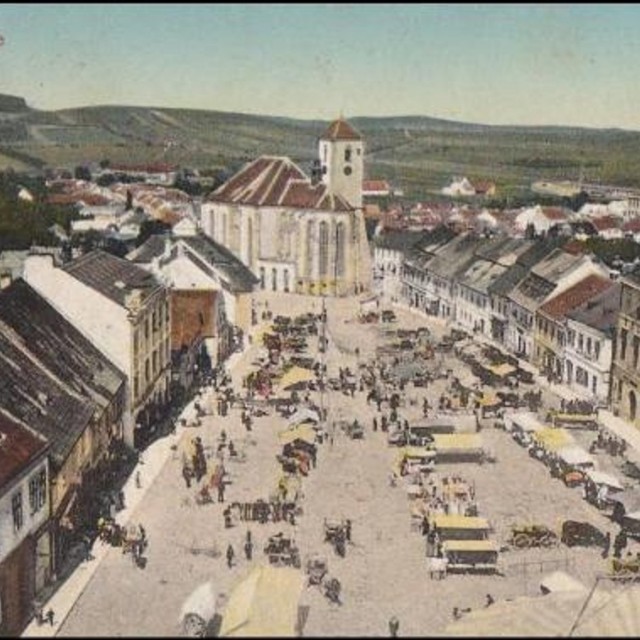Deportations of Jews
The Färber family lived in Boskovice. The father was a Jew from Moravia and the mother was a Roman Catholic from Slovakia. As a child coming from a mixed marriage, their son Leopold was not deported to Terezín. However, he lost sixteen close relatives whom the Nazis murdered during the war. He remembers the moment when he last saw his father’s family at the Boskovice square as follows: “They were allowed to take parcels of a certain weight. Then at the meeting point their possessions were taken away from them and thrown all together. My cousin was holding a little doll in her hand; a soldier came to her, grabbed the doll and threw it to the heap. She kicked him. She was just a four year-old, and the soldier beat her while everyone watched.” The father, protected from deportation by his marriage with a Slovak, took Leopold and moved him aside quickly: “Let’s get out of here before someone notices that we are Jews too.”
Hodnocení
Abyste mohli hodnotit musíte se přihlásit!
Trasy
Příběh není součastí žádné trasy.
Komentáře

Leopold Färber
Leopold Färber was born in Stará Halič in Slovakia on October 31, 1928. He grew up in Boskovice. His father was a Jew, his mother was a devout Catholic. Their mixed marriage saved them from their deportation to the annihilation camp. As a boy, Leopold, nicknamed Hurvínek, acted as a messenger between the anti-Nazi resistance groups. After 1948 he decided to carry on with the resistance activities. He founded a group with his two brothers Josef and František Marek, who i.a. wanted to damage the Police School with their secretly acquired explosives. However, the explosives blew up by an unlucky coincidence in the Färbers' flat and Leopold lost one of his eyes. The State Security arrested him together with Josef Marek in May 1950. It was shortly after the children from his Scouts' group had distributed leaflets saying 'Death to Communism!' around the neighborhood. Leopold Färber didn't know about that, he only inspired the children by his narrations about the war. The Court sentenced him to sixteen years in jail; he served eight years of his sentence. After that he worked at road constructions for many years, he was finally allowed to arrange shop-windows.



